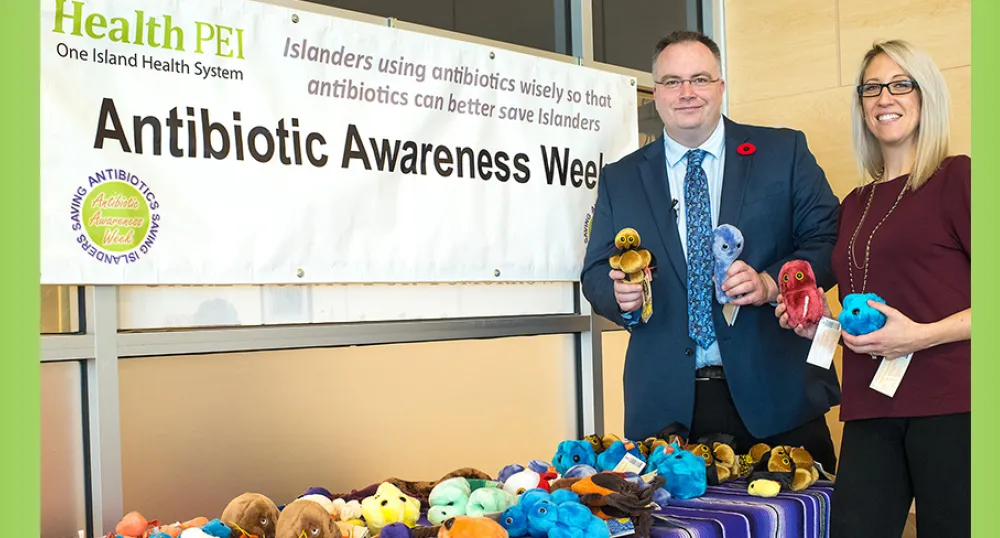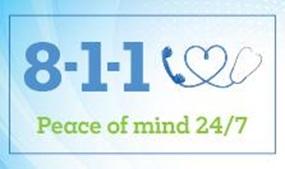Saving lives and reducing risk through proper antibiotic use

Antibiotics are one of medicine’s most powerful tools – when used properly.
Sarah Lutes and Dr. Greg German are working to make sure these important drugs don’t lose their power to cure.
Lutes, an antimicrobial pharmacist, and German, an MD and medical microbiologist, are hoping to raise awareness among the medical community, care providers and the public about the best way to use antibiotics without contributing to the problem of antibiotic resistant bacteria, or super bugs.
“We’d like to see people using antibiotics at the right strength for the right conditions,” said German. “Being careful about how and when we prescribe antibiotics makes it more likely that the antibiotics will be effective when they are needed. Smart antibiotic use can reduce the problem of antibiotic resistant bacteria developing.”
Antibiotic Awareness Week, November 12-18, 2018, promotes responsible use of antibiotics. Lutes and German said the week encourages conversation among the public and in the care community about antibiotics use that will make sure the drugs can provide help when they are needed.
“The biggest benefit comes when we can use weaker antibiotics for weaker illnesses, strong antibiotics for the stronger cases and no antibiotics in situations – like a viral infection, or a urinary tract infection without symptoms – where the antibiotic isn’t needed at all,” Lutes said.
Antibiotic education is vital in raising awareness about appropriate use and the need for caution. This includes new tools such as the Health PEI Virus Plan that provides information for patients about what to do when they have a viral illness that does not respond to antibiotics.
“We know that when people come in with an illness or with a sick child, they are hoping to get something to help. But often someone has an illness where antibiotics are not required,” said Lutes. “This v virus information sheet allows us to give the patient some information about how to care for their viral infection so they aren’t leaving empty handed.”
Lutes and German are also working hard to educate the public on the potential benefits and risks of reporting an antibiotic allergy, such as penicillin. Only 10% of people who report a penicillin allergy actually have a true allergy. A patient with a reported penicillin allergy is more likely to receive antibiotics from other classes which may be less effective, have more side effects, and be more likely to lead to resistant organisms.
German, who is vice chair of the national antibiotic stewardship and resistance committee, said he’s hopeful that people are waking up to the dangers of improper use and overuse of these medicines. He noted that they’ve worked with long-term care homes to reduce over-testing residents and over-prescribing antibiotics. A medical directive has been piloted at two long term care facilities which promotes the idea of only culturing urine from patients who have specific symptoms of a urinary tract infection. This has led to less antibiotics being given to these residents.
“By using these medicines in a different way we’ve managed to reduce the number of reported cases of antibiotic-resistant bugs. That’s very encouraging,” he said.
“We want to take precautions with antibiotics because the alternative is very serious. Right now we’re having a hard job dealing with these superbugs that are resistant to most of our medicines, but the worry is what will happen if we start getting “mega-bugs” that are immune to everything we’ve got.”
“Keeping that kind of threat at bay is a reason to be careful when it comes to how we use antibiotics.”


